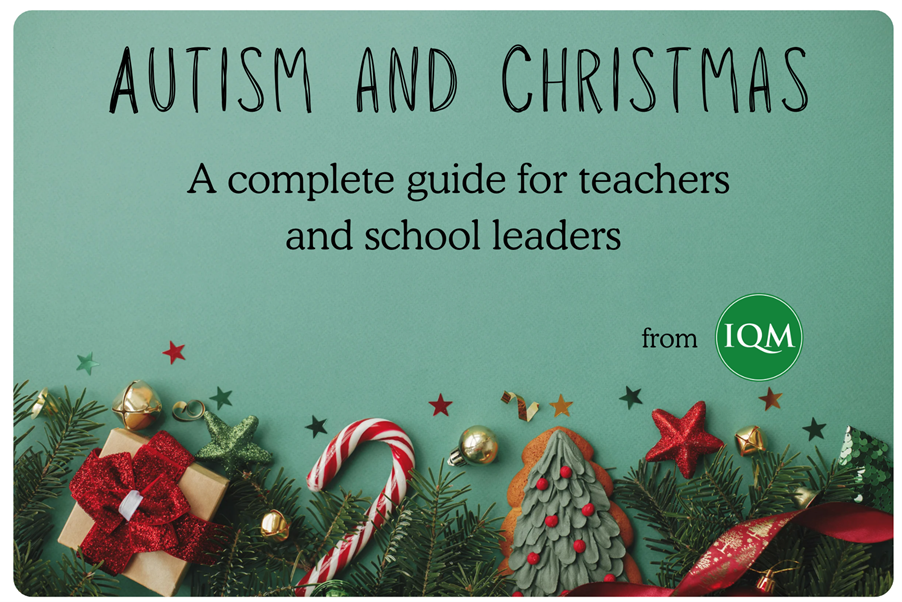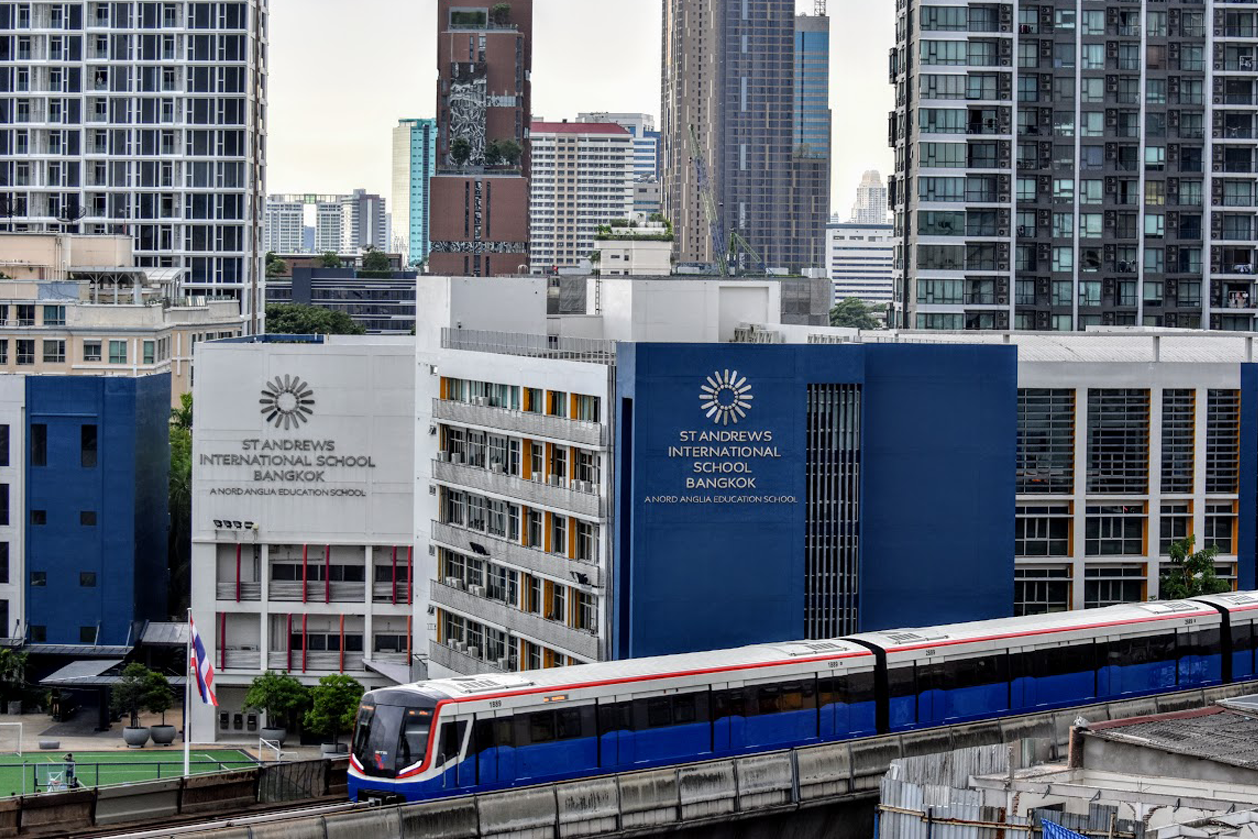Who is IQM?
IQM is the only national inclusion award in the UK. For over 20 years and in over 20 countries, schools, MATs and Local Authorities use the Inclusion Quality Mark to recognise exemplary inclusive practice.
Get in touch for your FREE school information pack today.
South Green Junior School Achieves Flagship Status
April 25, 2024
South Green Junior School has achieved the Inclusive School Award with Flagship status.
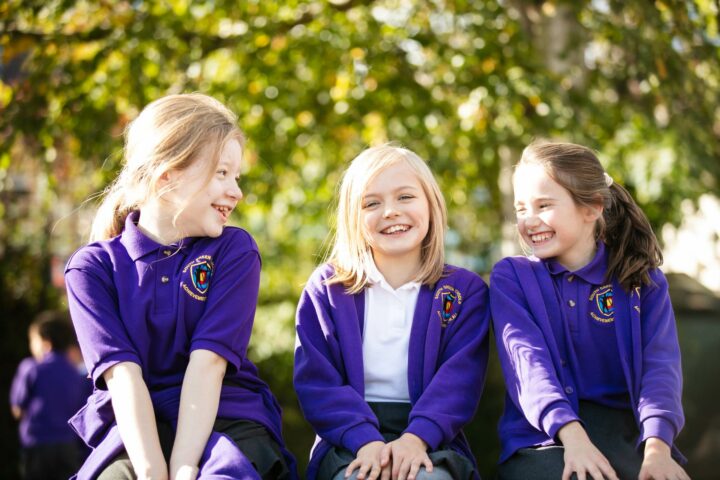
Excellent Example of Inclusive Practice
South Green Junior School is an excellent example of inclusive practice. Inclusion permeates all aspects of the school’s work and there are good links with the local community to offer support for families. It is a school with 237 children and the Headteacher and the Senior Leaders continue to ensure that all staff have similar inclusive aspirations for the children of the school. The Headteacher demonstrates strong, caring leadership and she works effectively with her Senior Leadership Team and the Governing Body to ensure that all staff have similar aspirations for children at the school. The catchment area has predominantly white British families but the school makes every effort to compensate for this by providing a rich, aspirational curriculum that reflects the multicultural nature of the population.
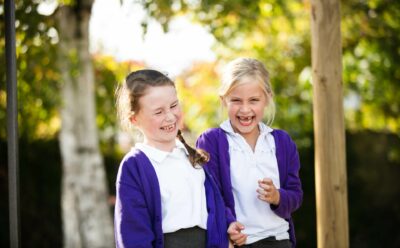
The work over the past year towards the Flagship project has been very successful in moving the school forward. The four strands have been given high priority and teachers and non-teaching staff are aware of these elements for development and gave an excellent account of progress in each of the areas.
The focus on children with PPG in particular has been significant. Wellbeing and mental health has been prioritised with counselling, interventions and Thrive sessions supporting vulnerable children. There are now more children accessing the Thrive programme. The school continues to carry out whole-class assessments twice each year and it identifies pupils that need group or one-to-one sessions with the Thrive practitioner. These assessments also highlight the whole-class focus as a group project.
Attendance Expectations
Attendance expectations are high with all those children with under 95% attendance addressed and the needs of particular families supported where appropriate. A breakfast club provides a good start to the day for some of the persistently absent children. The school continues to work on strategies to improve attendance whilst trying to understand and carefully consider any family issues that might be affecting the low attendance.
Learning behaviours are given a high priority with specific lessons addressing behaviours and reinforcement. Staff are well trained and use positive phrasing when speaking to children about their behaviour. Children are clear about the expectations in school and are able to articulate these rules quite clearly. The school values of being Responsible, Resilient, Respectful and Reciprocal are evident in classrooms and in discussions with children. A ‘Learning Pit’ display encourages children to face a challenge, have a go, problem solve and practise deep learning.
South Green Junior School values the role of parents and the family in ensuring children are secure and ready to learn. Relationships with parents and carers are prioritised. There are regular coffee mornings focusing on various aspects of school and family expectations. Parental surveys also give the leadership an understanding of what is going well and what needs to be done to improve aspects of engagement with families.
Parents spoke highly of the impact the school has on their lives and the lives of their children. One parent recounted the journey that she had been on with her child since coming to the school. The child is now in Y6 and “talks openly about her experiences” and now says “I am going to be me!” The parent puts much of that down to the school and the support she has received.
Another parent related how different her child was now after some difficult times. “Now she is so different – so much more confident and open. I could have cried at parents’ evening!” she said. She added, “LSAs build up her confidence.” All the parents stated that the school keeps them updated on what is needed. “There is always praise and positivity from staff and this has worked wonders. My daughter is now on track with her SATs after a great deal of input,” said one satisfied parent. Another parent, who coached the school netball team, praised the attitude and behaviour of the children. The consistency of homework given to the children was questioned although the parent did also recognise that this was always a difficult topic in schools.
The school makes every attempt to engage parents in the life of the school. There are workshops in spelling, grammar and reading. In the summer term, there will be a session on maths. Parents will be invited into school to work alongside their children. These sessions will be filmed and put on the school website so that everyone can benefit. There are also SAT practice sessions before school on Tuesdays and Thursdays to prepare Y6 children for the coming national tests.
Opportunities
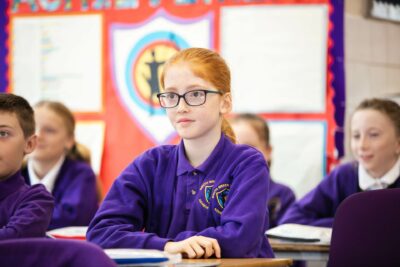
Pupils across the school have a range of opportunities to further their understanding of the wider world and to extend their curriculum opportunities. They spoke to our Assessor about their responsibilities as school councillors, playleaders and house captains which gives them a voice. A playleader said how she supported children who were by themselves in the playground and tried to involve “those children who are not involved.”
One school councillor said, “The school is amazing!” He recounted how children were given the opportunity to decide on the charity they wanted to adopt through a class discussion and a class vote. They had raised money for the Guide Dogs for the Blind and Little Haven Hospice. Money raised came from a fun run and paying £1 for “not writing for the day.”
They also spoke of their work during the day in class. “They listen to each other, they focus on the main text, plan the story and then change the story so that it is similar” was one explanation. They also spoke of hot and cold tasks, their pride in their book corners and the rivalry between classes to have the best book corner which was decided by the school councillors. They use the much improved and attractive library for at least one session each week to exchange books. They also spoke about scanning the books and the quiz to ascertain whether they had understood what they had read. They were all positive about the reading experience. Three books are given to the children in receipt of PPG each year and reading lessons are well structured and planned. Modelling and developing a love of reading is promoted and this is being developed in other subjects with science having a reading spine of carefully chosen high-quality texts that teachers are beginning to use in their lessons. Accelerated Reader and Sounds Write Phonics are schemes that are used to support reading.
PPG children have the same opportunities as all the children in South Green Junior School. The school classes go on a variety of trips related to their learning and children with PPG often receive support to pay for these trips to ensure they are included. Sport is well organised within the school. The Sports Leader is enthusiastic and ensures that all children, regardless of ability or disability have the opportunities to compete against other schools, take part in tournaments and have full and active participation in a wide range of sports and club activities. Swimming galas, tag rugby, a shooting stars football festival, badminton, table tennis and cricket are amongst the many activities available to all children.
There are also a number of clubs organised for all year groups during the week as extra-curricular activities. Other events such as the Y6 residential, planting crocuses with the Rotary Club, gaining Blue Peter badges and visits to the Musical Theatre all add to the wide range of experiences available to the children. A gymnastic session for children with SEND and PPG led by the coaches from the South Essex Gymnastic Centre at the Basildon Sporting Village and Bramble Maths tutoring for PPG pupils are of particular noteworthy mention.
Children Are Not Forgotten
More able children are not forgotten within the school’s very inclusive curriculum. There are enrichment opportunities and a reading and maths 110 Club to push pupils to reach higher standards. Invited children attend the enrichment club. These tend to be children who have achieved greater depth across the school. The children take part in public speaking and presentations. They have had sessions on making clouds, perspective in films, time in history and events in the world today. Children speak very highly of their involvement in these areas of learning.
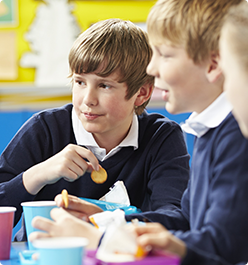
The curriculum is well-planned to ensure all children are included. Barriers to learning are discussed as a whole staff. These are given high priority in planning. Expectations are clear and staff training has included pupil data, developing a PPG strategy statement, developing marking and feedback and challenges for everyone. Book monitoring has been positive in identifying extended writing opportunities and new vocabulary being taught with one-to-one, group and adult support indicated in books. One member of staff spoke of the therapeutic approach which staff adopt. “You can see you are making a difference to the pupils. You change your approach depending on the child. You have to know the child. Some children know what is happening and can regulate themselves – others need help.” Another said, “You look for the child underneath the behaviour.”
Oracy training for staff has been successful in promoting oracy across the school. There are oracy materials displayed in each classroom with vocabulary in use at the time. Maths oracy includes sentence stems and the use of mathematical vocabulary and generally makes oracy more explicit. There is a focus on making sure the vocabulary for the unit being taught is available and on display. There is a working wall for maths in every classroom.
Oracy pupil voice is being developed across all subjects. Children share their projects in class and assemblies and there has been a noticeable improvement in their confidence when carrying this out. Year group performances at Christmas and Easter and at the Y6 production at the end of the year have added to the children gaining that confidence to perform to parents, staff and children. The Poetry Slam, which was so successful last year, is being prepared for the summer term. ‘Rise and Shine’ is now being tried out in Y5 and Y6 and teachers mentioned how “children are more confident, almost as if they are performing.” Project assemblies were also quoted by teachers as having a positive impact on children’s confidence. One said, “the more positive we are, the more positive children are.”
Excellent Training Opportunities
LSAs play a big part in the lives of the children. They have received excellent training opportunities. These include training in autism awareness, safeguarding, Talk Boost, Lexia, Thrive, Prevent and science workshops. They feel that they are kept informed of everything that is happening in school and have a Monday morning meeting to discuss the plans for the lessons. One of the LSAs is the ADHD champion. She is planning a six-week intervention alongside the SENCo for children who need additional support for ADHD after receiving training on a school Inset day.
The Governors are kept well informed of the work of South Green Junior School. They have a new Chair of Governors who is very knowledgeable and when interviewed could detail the focus of the school’s Flagship targets. He spoke of working sessions with the Governors and staff to understand what the school is targeting, why they are doing it this way and what evidence they need to support the targeted areas. Governors have strategy meetings and are very familiar with the School Improvement Plan. He summed up the role of the Governors as “finding the right pathway, laying the foundations and is it strong enough?” The Governors have different working backgrounds, bring a great deal to the expertise in the school and continue to be well-led.
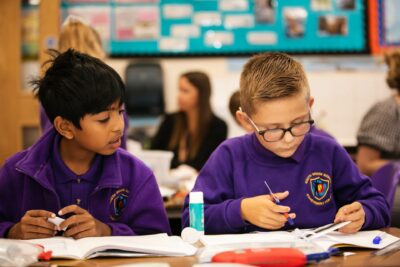
The atmosphere in classes and in shared areas is calm with children reflecting and valuing the care and attention which all staff show for them. Children are often involved in the decision-making process where matters relating to their school environment and learning are concerned. Displays in classes and in shared areas are well set out and reflect the ethos of inclusivity within the school. In classes there is a consistency of expectation with washing lines for support in oracy, maths and literacy working walls, achievements celebrated, the class topic for the term and science displays, all carefully displayed as a means of supporting children’s learning and celebrating their activities.
In corridors, displays showing children’s progressive work in Y3, Y4, Y5 and Y6 focus on Working Scientifically and computing. Other displays in the lower school highlight projects on the Stone Age and South America and in the upper school, The Victorians, Rain Forests, World War 1 and a celebration of Y5 poetry. In the dining area, a display focuses on ASD. In the entrance hall, attendance figures for each class can be seen and the school’s priorities are clearly set out. The school’s vision, ethos, values and aims are also set out for any visitors to the school to see. The vision is, “to provide outstanding achievement for all” and the school certainly sets out to achieve that aim.
The school aims to ensure that its children see beyond their home environment and what opportunities exist. The staff want the children to understand that their current learning leads to many opportunities.
South Green Junior School is a caring environment for pupils where high expectations have a huge impact on progress, attitudes, behaviour and wellbeing.
Find out more about the IQM Inclusive School Award
If your school is interested in obtaining the IQM Inclusive School Award or you wish to talk to a member of the IQM team please telephone:
028 7127 7857 (9.00 am to 5.00 pm)
or email: admin@iqmaward.com for further details.
Want more information on the IQM Award? Click here to request your free IQM information pack.
Other Posts

About IQM
The only national award for inclusion in the UK, IQM has been committed to recognising exemplary inclusive schools for over 20 years and in over 20 countries around the world. The three awards allow schools and organisations to celebrate their inclusive practice against nationally recognised framework.
Site Links
© 2026 Inclusion Quality Mark | website developed & cared for by digidoda

